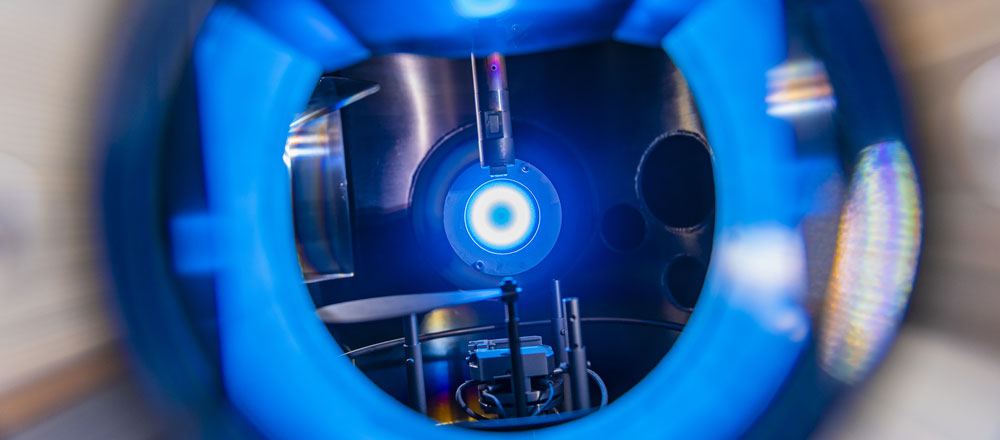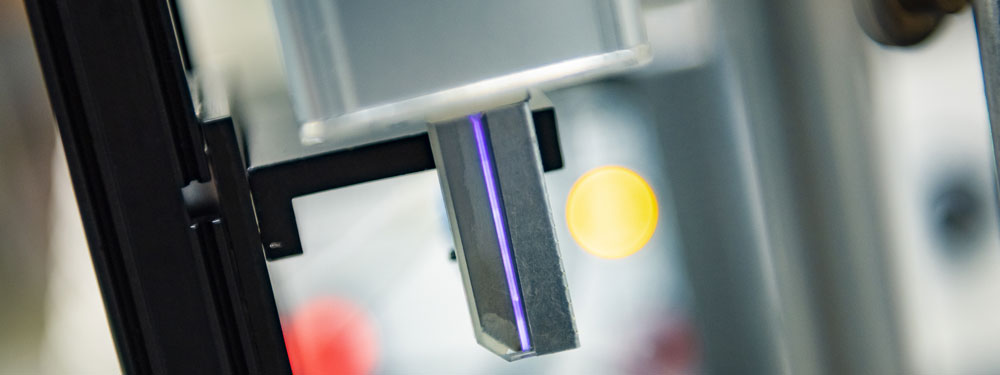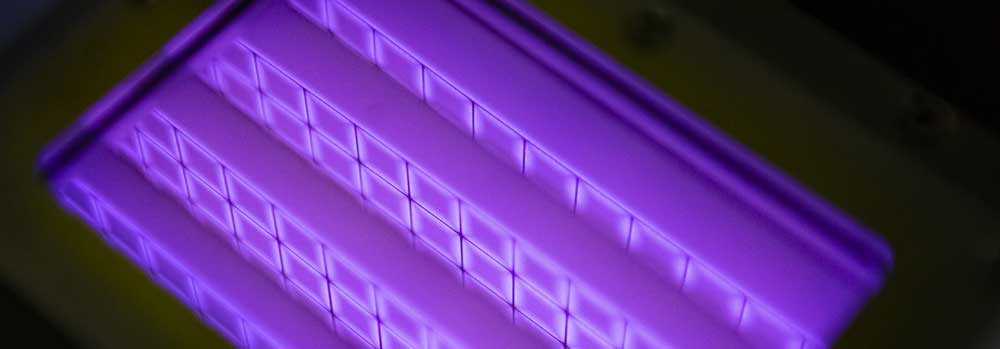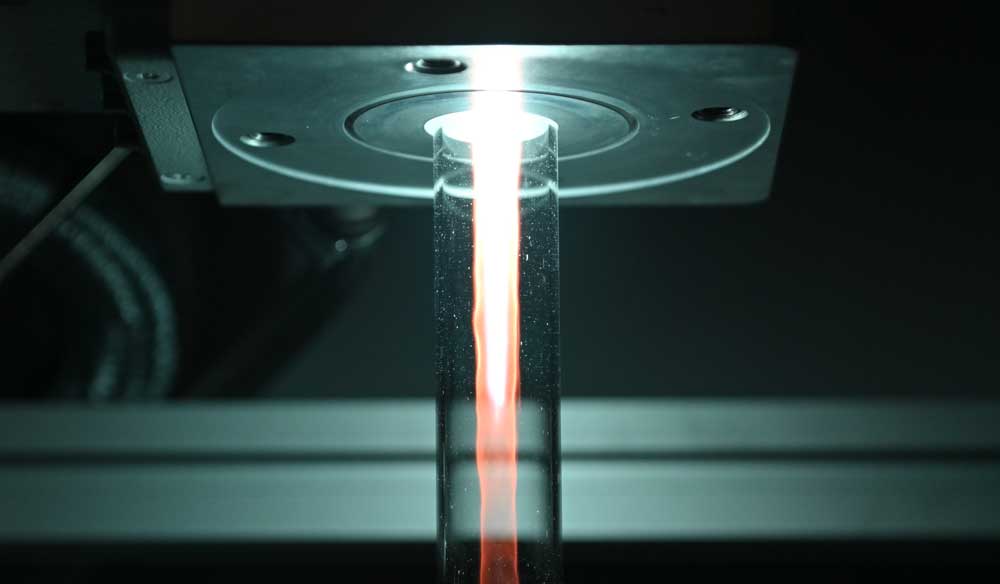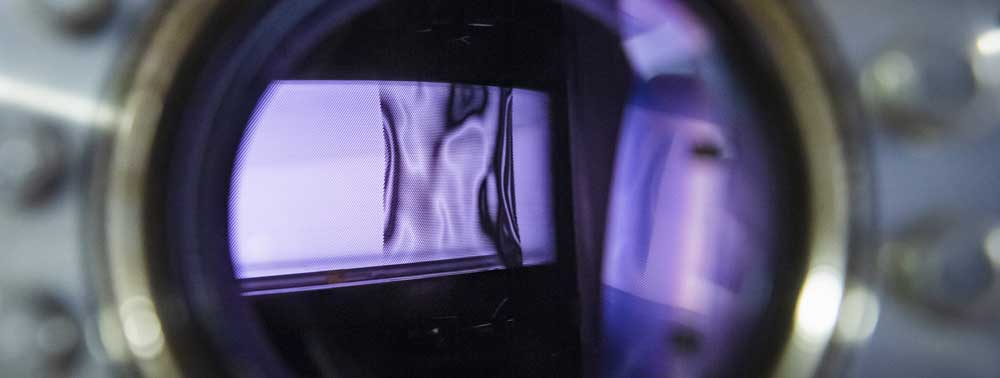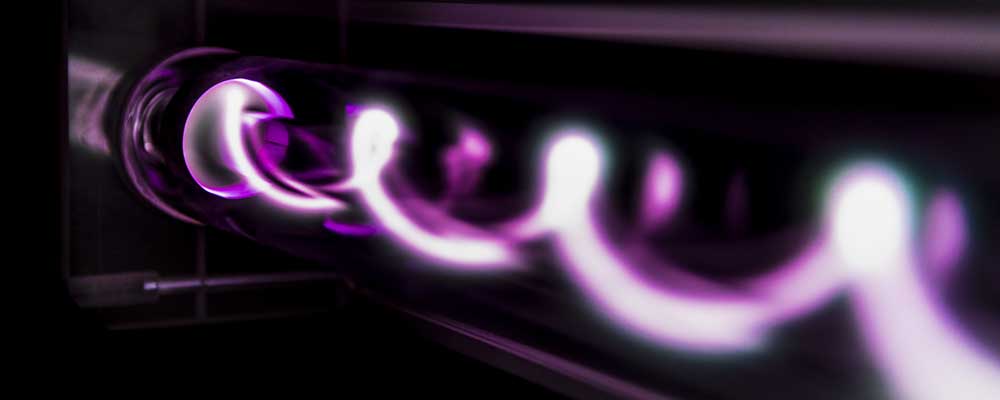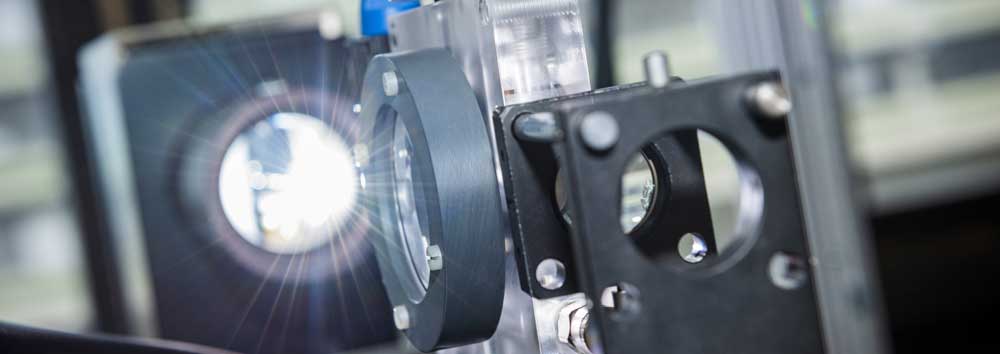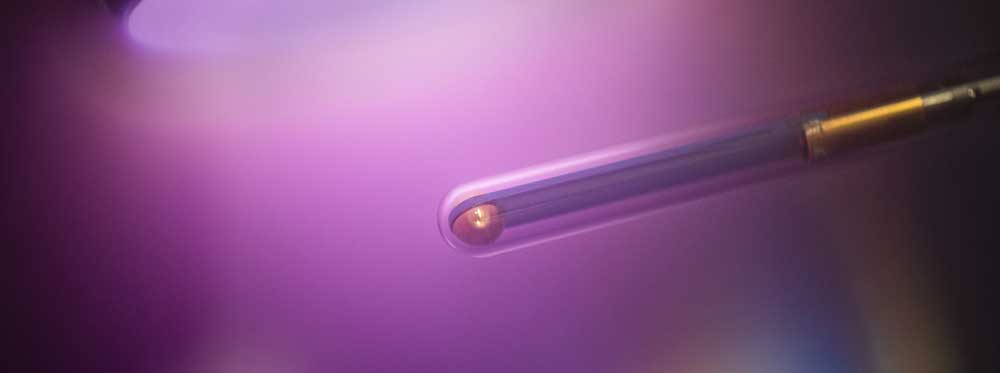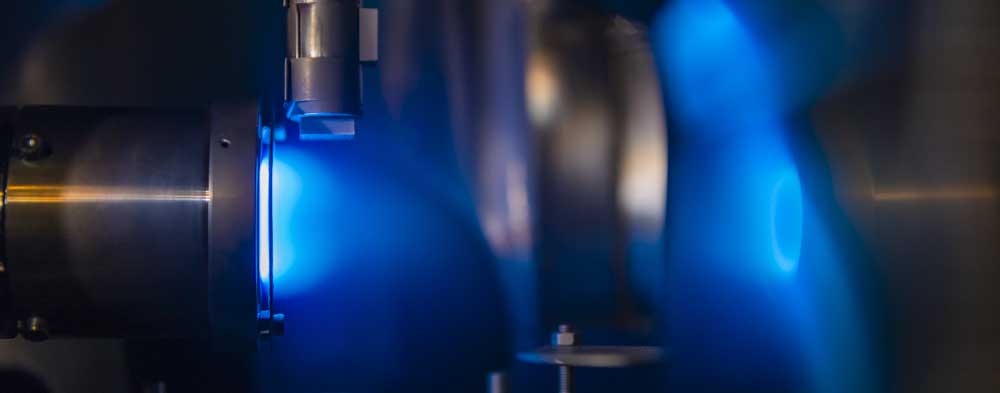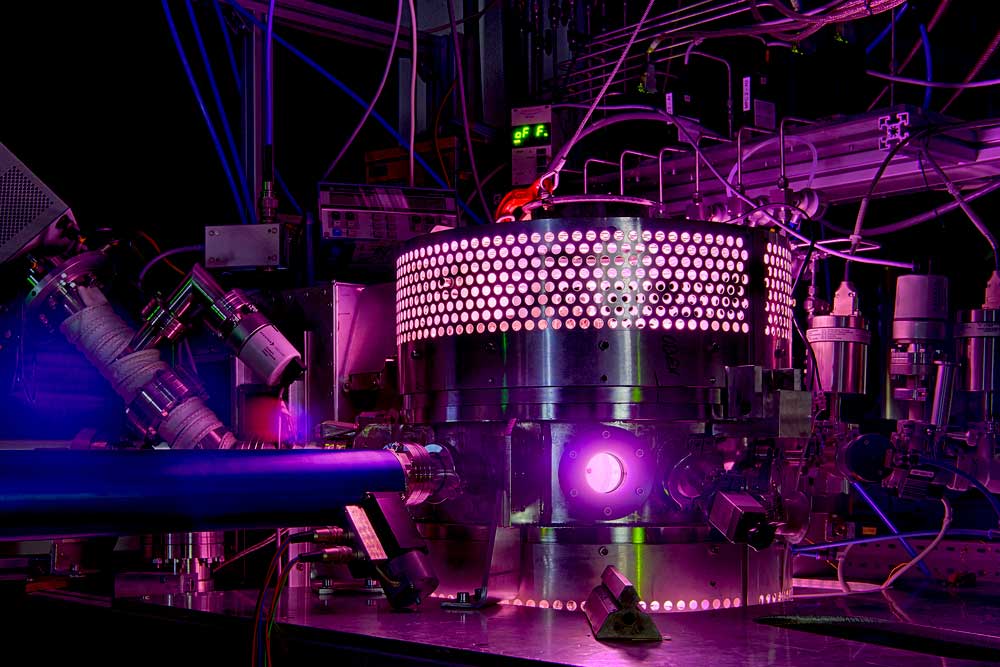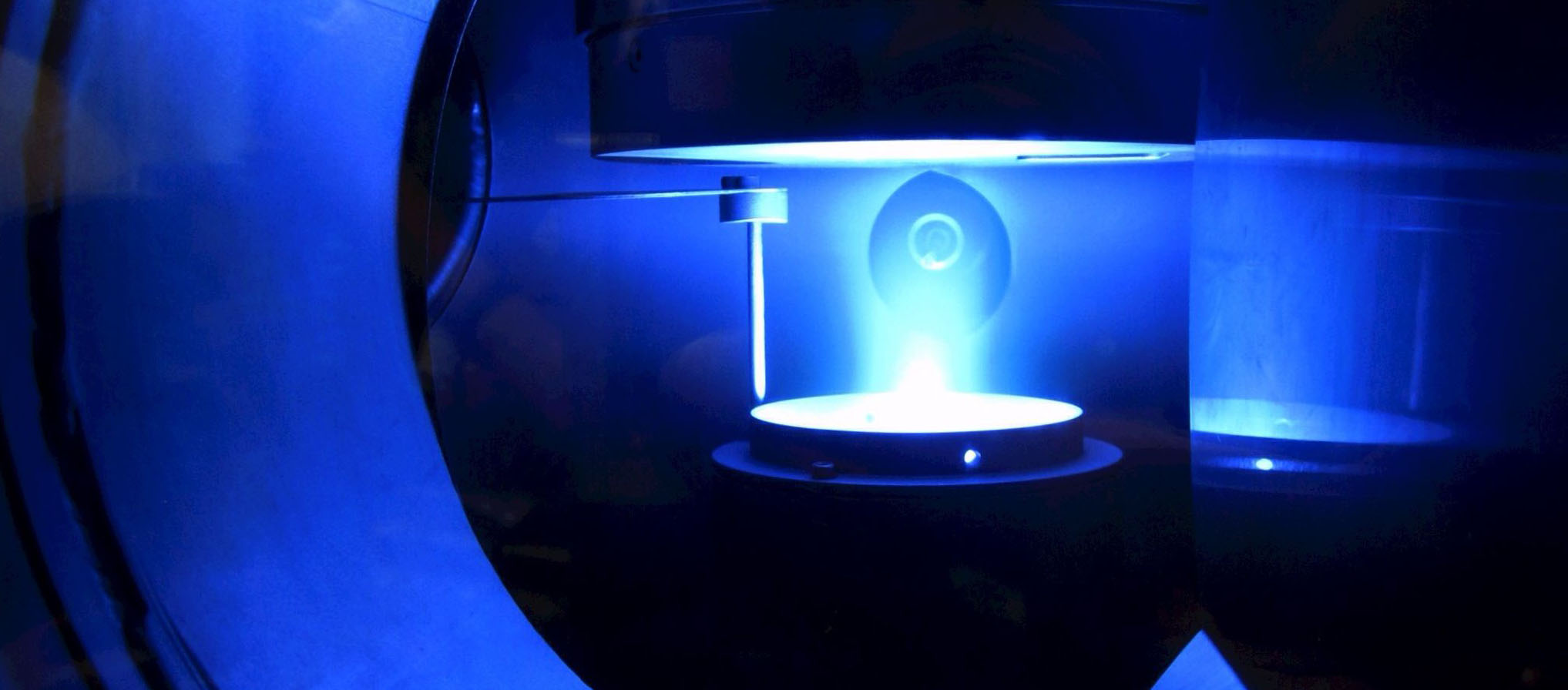B5 - Plasma in liquidsBubble dynamicsGas bubble dynamics during Plasma Electrolytic Oxidation |
- Details
Guests
Visit of Prof. Katsuyuki Takahashi

Assoc. Prof. Dr. Katsuyuki Takahashi (Iwate University, Japan) visited the Chair for Atomic and Plasma Physics (Prof. U. Czarnetzki).
During his stay Prof. Takahashi visited the laboratories of many groups at RUB that are working within the CRC 1316. In a seminar talk Prof. Takahashi presented the various research topics that are covered by his group and the group of Prof. Koichi Takaki (Iwate University). These include pulsed non-thermal plasmas for enviromental and agricultural applications among others. The overlap in many of the topics could provide fruitful grounds for future collaborations between the Ruhr University Bochum and the Iwate University.
- Details
Internationalization
DPG spring meeting
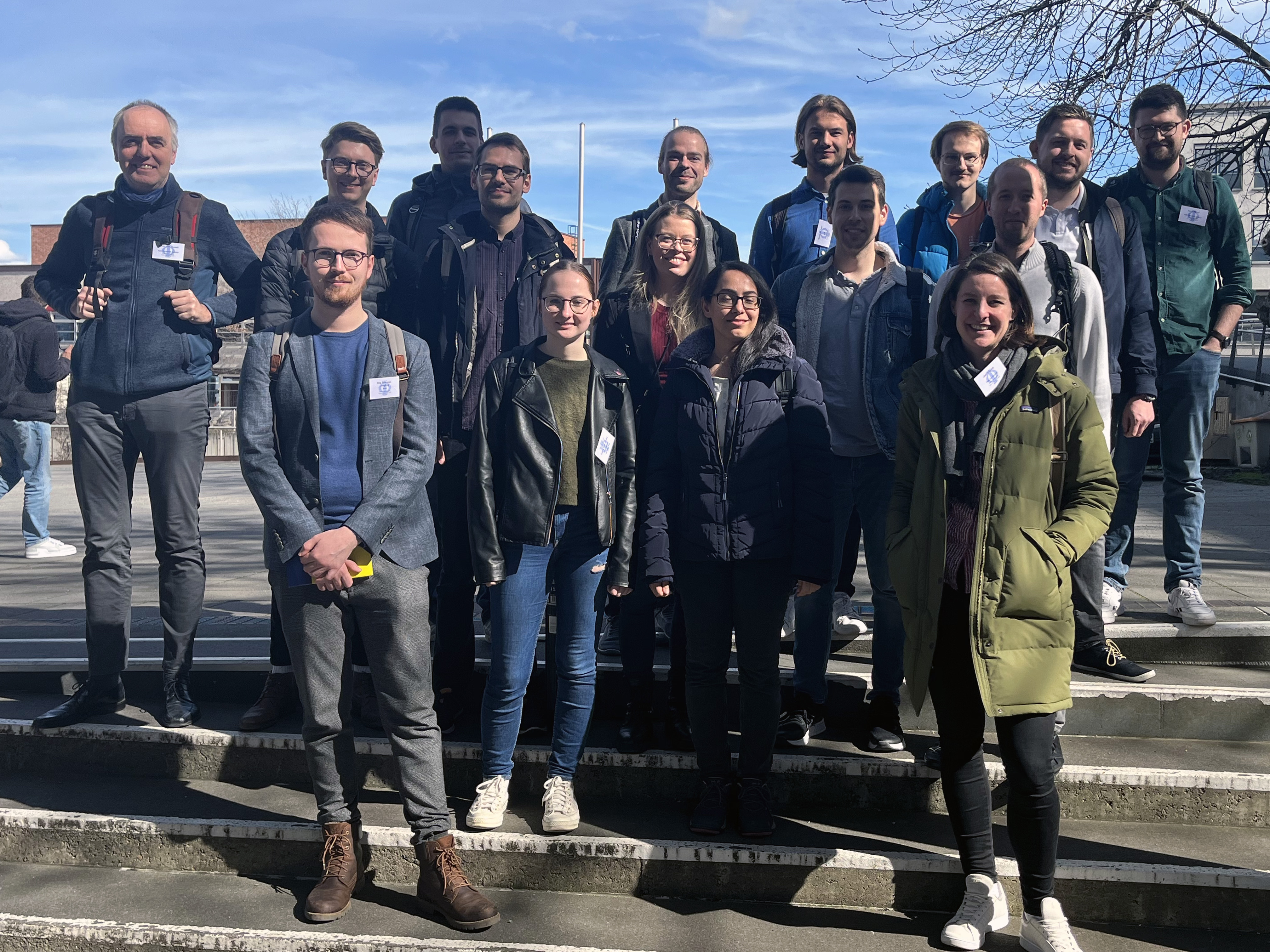
At the annually DPG (German Physical Society) meeting, the plasma groups from RUB campus had many contributions during this event. At least eleven oral presentations including one invited talk as well as eleven poster presentations were given by CRC 1316 members.
- Details
DPG Conference 2024
AEPT at DPG Conference in Greifswald
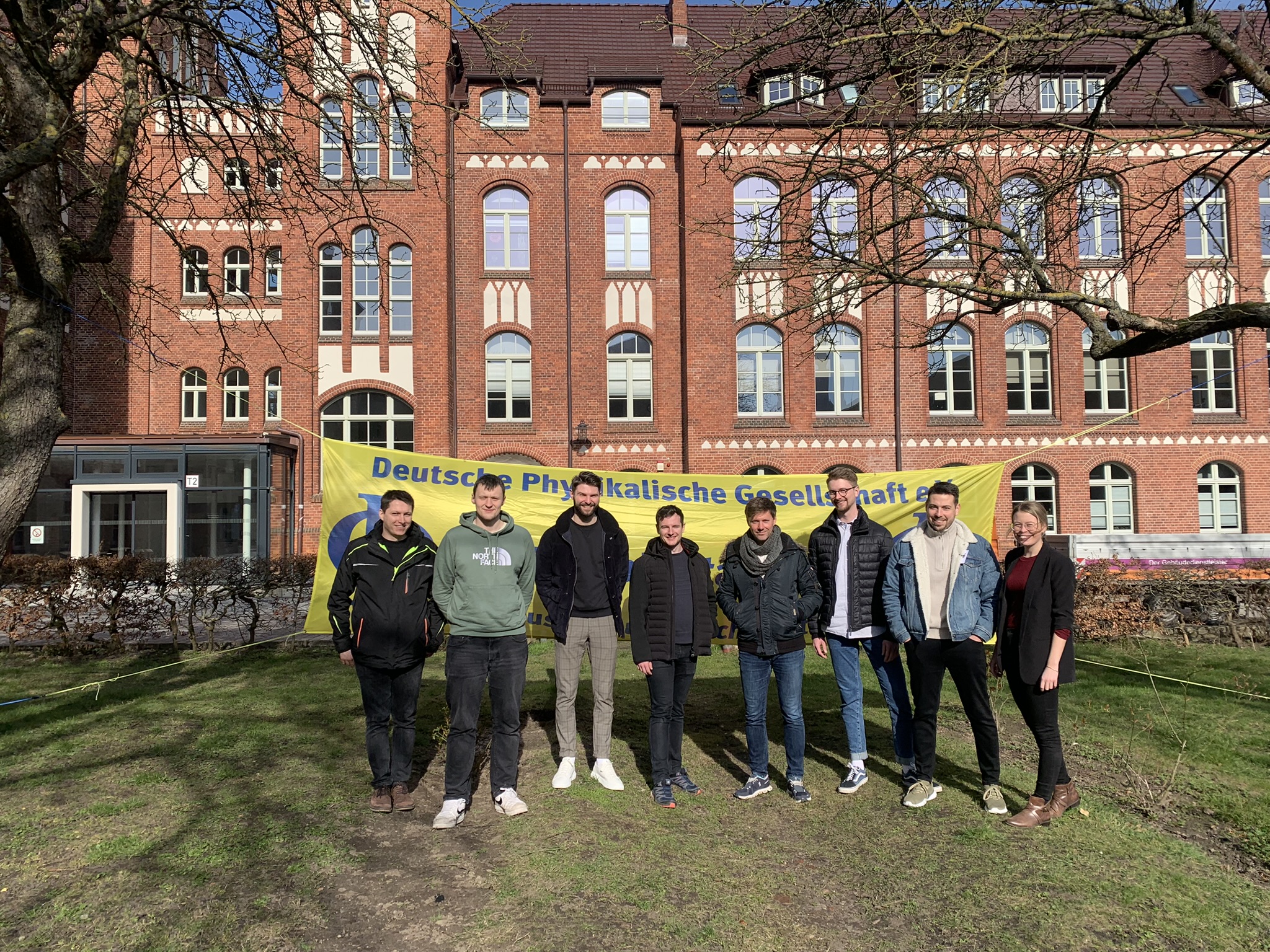 At the spring conference of the German Physical Society (DPG) in Greifswald, specialist associations and working groups from the field of physics gathered for an interesting scientific exchange. The Plasma Physics Association, in which AEPT researchers are represented, was also actively involved. The Plasma Physics Association is dedicated to fascinating research into the physical properties of plasmas and their diverse applications. Our researchers presented exciting lectures on these topics. In addition to intensive discussions on current research results, the conference also offered the opportunity to visit and tour the well-known fusion research reactor Wendelstein 7-X .
At the spring conference of the German Physical Society (DPG) in Greifswald, specialist associations and working groups from the field of physics gathered for an interesting scientific exchange. The Plasma Physics Association, in which AEPT researchers are represented, was also actively involved. The Plasma Physics Association is dedicated to fascinating research into the physical properties of plasmas and their diverse applications. Our researchers presented exciting lectures on these topics. In addition to intensive discussions on current research results, the conference also offered the opportunity to visit and tour the well-known fusion research reactor Wendelstein 7-X .
- Details
MGK Colloquium
Internal exchange in Ulm
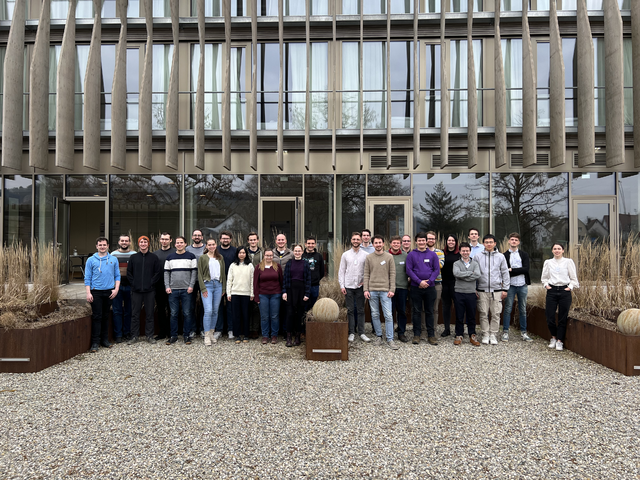 From 1.3. to 3.3. the MGK Colloquium meeting took place in Ulm. Besides the scientific exchange about transient atmospheric pressure plasma, an electrochemistry workshop was held at the University of Ulm. In addition, experts from other fields were invited.
From 1.3. to 3.3. the MGK Colloquium meeting took place in Ulm. Besides the scientific exchange about transient atmospheric pressure plasma, an electrochemistry workshop was held at the University of Ulm. In addition, experts from other fields were invited.
Thanks to Angela Bayler from centrotherm international AG, Luca Vialetto from Christian-Albrechts-Universität zu Kiel, and Peter Hartmann from Wigner Research Centre for Physics in Budapest.
- Details
Research Data Management
2nd Workshop on FAIR data in Plasma Science
We are happy to announce the second workshop on research data management in Plasma Science. NP, CAU and RUB are now organizing the 2nd Workshop on FAIR Data in Plasma Science, which will take place from May 3-4, 2023 at the Event Center at Ruhr-Universität Bochum, see also https://www.plasma-mds.org/ws-fair-data-plasma-science-2.html.
The workshop is aimed at researchers at different stages for exchange on the topic of data management. Topics of the workshop are electronic lab journals, practical questions in the daily handling of research data management systems as well as the presentation of already established solutions. In addition, an interactive part is planned, which will deal with the question of how to get standards into the laboratory. Here, all participants are invited to contribute their ideas and your practical expertise.
- Details
Award
Martin Muhler receives Alwin Mittasch Award 2023
Prof. Dr. Martin Muhler was awarded the Alwin Mittasch Prize 2023 for his "fundamental contributions to the cross-scale understanding of the mode of action of catalyst materials in chemical reactions for future-oriented technologies". This award is given to researchers for outstanding achievements in the field of catalyst research by German Society for Catalysis. The award will be handed over in Weimar on March 16, 2023.
Prof. Dr. Martin Muhler holds the Chair of Technical Chemistry at Ruhr-Universität and is a board member of SFB 1316, PI in project A7 "Plasma catalysis for conversion of volatile organic compounds (VOC)", as well as a member of the MGK.
- More information about the award can be found in the RUB article.
- Details
Company visit
Visit of the company Plasmatreat
The lecture "Introduction to plasma physics II" and Bachelor, Master and PhD students of the chair EP2 and the group Plasma Interface Physics visited the company Plasmatreat in Steinhagen near Bielefeld. The company excels in the production of atmospheric pressure plasma jets for polymer functionalization.
- Details
Outreach
Kick-off event of the Science Year 2023
On Saturday, 11.02.2023, the kick-off event of the Science Year 2023 "Our Universe" took place. The SFB 1316 was represented with a booth at the Zeiss Planetarium Bochum.
Besides live experiments, there was a varied program with a plasma quiz, coloring pictures and slide show. As live experiments, the plasma sphere and plasma mass were presented as hands-on experiments, and the plasma speaker and COST jet were shown for demonstration. Here, the new portable COST-Jet could be used for the first time outside the university. Thanks to its construction on a plate with gas supply, generator and holders for optical fibre and spectrometer, another experiment and authentic diagnostics from the laboratory can now be shown at events.
A big thank you to the many helping hands and all interested people who visited us!
- Further information on the Science Year can be found here.
- Details
Honour
Henrik van Impel‘s outstanding Bachelor thesis
Congratulations to Henrik van Impel, who won the student award of Ruhr University Bochum with his bachelor thesis "Diagnostics of atomic oxygen in a micro-cavity plasma reactor". He received his certificate during the yearly celebration of the University hosted by the Rector of the University.
In his bachelor thesis, Mr. van Impel used actinometry to investigate the formation of atomic oxygen in a plasma array reactor. With his finding, he made an important contribution to project A6 in CRC 1316.
- You can find further information on the work and publications within project A6 on its project page.


